Thinking about a career in real estate in Michigan? With the right steps, you can turn your goals into a rewarding profession in a growing industry. Every year, many pursue real estate for financial freedom and the chance to help others find their dream homes.
To get started, you must be at least 18, hold a high school diploma or GED, and complete a 40-hour pre-licensing course. This course equips you with the essentials for handling real estate transactions.
You’ll also need a sponsoring broker to support your early career. After passing the state licensing exam, submit your application to LARA with an $88 fee.
Keep in mind, staying licensed requires 18 credit hours of continuing education every three years. Knowing these steps helps set the foundation for a successful real estate journey.
Key Highlights
- Complete a 40-hour pre-licensing education program that covers real estate fundamentals and civil rights law through an approved provider.
- Secure sponsorship from an active Michigan-licensed broker before activating your license.
- Submit your application along with an $88 fee to the Michigan Department of Licensing and Regulatory Affairs (LARA).
- Pass the Michigan Real Estate Exam, ensuring you are well-prepared for state-specific laws and regulations.
- Maintain your license by completing 18 credit hours of continuing education every three years, which must include legal and Fair Housing requirements.
Basic Requirements and Eligibility for Michigan Real Estate Licensing
Before you dive into this dynamic field, it’s crucial to understand the essential requirements that will pave your way to obtaining a license. To start, aspiring real estate professionals in Michigan must be at least 18 years old and either a U.S. citizen or a legal resident with a valid Social Security number. This foundational requirement helps ensure that only qualified individuals enter the profession.
A high school diploma or GED is necessary, along with basic English reading and writing skills. While a college degree isn’t mandatory, non-U.S.-born applicants must present appropriate documentation to verify their citizenship or residency status. Additionally, many successful agents leverage local expertise in areas like Oakland and Macomb Counties to enhance their marketability. Understanding the various selling strategies available, such as those in the Owner Advocate Program, can also give you a competitive edge.
Moreover, the licensing process includes a comprehensive background check that requires fingerprinting through approved vendors. This check scrutinizes both state and federal criminal histories, with particular attention given to fraud-related felonies, which automatically disqualify candidates. Other felonies and misdemeanors will be evaluated on a case-by-case basis, allowing for a nuanced approach to each applicant’s history.
One critical step in your journey is securing sponsorship from an active Michigan-licensed broker. This broker not only provides guidance but also assumes legal responsibility for your transactions. This relationship is vital as it connects you to the local market and enhances your understanding of the industry’s nuances. Additionally, having a broker with extensive local knowledge can significantly enhance your ability to navigate the competitive Auburn Hills market effectively.
Pre-Licensing Education and Course Requirements
Once you meet Michigan’s basic eligibility criteria, you’ll need to embark on a comprehensive 40-hour pre-licensing education program approved by the Department of Licensing and Regulatory Affairs (LARA). This rigorous curriculum includes four essential hours dedicated to civil rights law and equal opportunity housing, which are critical in fostering an inclusive real estate market. Additionally, understanding the benefits of a cash offer process can be advantageous for your future clients when selling their homes.
Flexibility is key in today’s fast-paced world, and Michigan’s pre-licensing options reflect this need. You can choose from online, in-person, or hybrid courses provided by LARA-approved institutions like Allied Schools and Michigan Real Estate School. Throughout the program, you’ll delve into vital subjects such as property ownership, contracts, financing mechanisms, and state regulations. To ensure mastery of the material, knowledge checks are integrated into the coursework, culminating in a final examination.
Upon successfully completing the course, your provider will electronically submit your completion certificate to LARA within two business days. Keep in mind that these certificates are valid for 36 months, giving you ample time to prepare for your license application. As for costs, expect to invest between $199 and $599, depending on the provider you select. Most full-time students can anticipate completing the program within three to six weeks. Additionally, having a strong understanding of local market trends can greatly enhance your effectiveness as a real estate agent.
Finding a Sponsoring Broker and Application Process
Once you’ve completed the essential pre-licensing education, your next major hurdle is securing sponsorship from a brokerage. While Michigan law does not mandate broker sponsorship to sit for the state exam, you must establish a sponsorship within one year post-examination to activate your license. This timeline adds pressure to an already challenging process.
Choosing the right broker requires thorough research and strategic thinking. You should look for brokerages that align with your career goals and the specific market you wish to target. Key factors to consider include the broker’s reputation, the training resources they offer, commission structures, and their specialization in particular market segments. For instance, if you aspire to work in luxury real estate, seek out a brokerage with a proven track record in that niche.
The application process itself is straightforward but requires an $88 fee and submission to the Michigan Department of Licensing and Regulatory Affairs (LARA). After you submit your application, your sponsoring broker will need to verify your information through the MI Plus system.
However, the journey to secure a broker is not without its challenges. Market saturation can make it difficult to find available sponsorships, and competition for top positions is fierce. To mitigate these risks, it’s essential to review any contractual obligations thoroughly and ensure that your chosen brokerage provides robust support, including necessary resources like errors-and-omissions insurance coverage. A sponsoring broker is not just a facilitator; they provide vital legal oversight and ensure compliance with state regulations, which can be critical for your success.
Preparing for and Passing the Michigan Real Estate Exam
To prepare effectively, consider the following essential steps:
- Complete a State-Approved 40-Hour Pre-Licensing Course: Engage with accredited providers like The CE Shop to ensure you cover all necessary content.
- Utilize Targeted Study Materials: Leverage Michigan-specific prep books and online question banks that include practice exams tailored to the state’s regulations and requirements.
- Master Key Subject Areas: Focus on critical topics such as license law, property ownership, and contract analysis. Understanding these concepts is vital not only for passing the exam but also for your future dealings in real estate.
- Implement Strategic Test-Taking Techniques: Develop skills in time management and elimination strategies to maximize your performance during the exam’s three-hour limit.
Creating a structured study plan that integrates these elements is essential. Regularly taking practice tests under timed conditions will not only familiarize you with the exam format but also help identify areas where you need to improve. Diagnostic assessments can pinpoint weaknesses, allowing you to tailor your study sessions effectively.
Post-Licensing Requirements and License Maintenance
To keep your license active, Michigan requires real estate professionals to complete a total of 18 credit hours during each three-year renewal cycle. This includes a non-negotiable six hours focused on legal education, which is essential for navigating the complexities of real estate regulations. Starting February 13, 2024, there is an added layer: licensees must now fulfill an annual one-hour Fair Housing education requirement. The remaining hours can be comprised of approved elective courses, which must be taken through state-sanctioned providers and documented through the CE Marketplace.
Renewal of your license is done through Michigan’s MiPLUS portal, with the renewal cycle kicking off from your initial license issuance date. It’s critical to note that there is no grace period for late renewals; an expired license requires a reinstatement process that could delay your business operations. Non-compliance with these education requirements not only risks your license but can also lead to significant penalties.
To avoid these pitfalls, it’s advisable to keep track of your Continuing Education (CE) certificates for three years and to be prepared for potential random audits to verify your compliance. Staying informed and proactive regarding your license maintenance is essential to thriving in Michigan’s real estate market.
In Summary
Becoming a licensed real estate agent in Michigan involves several important steps that require commitment and effort. First, you must meet the basic requirements set forth by the state, which include age and education criteria.
Afterward, completing pre-licensing education is essential to gain the necessary knowledge about the real estate market and regulations. Once equipped with this education, finding a mentor broker to guide you through the industry is crucial for your professional growth.
At The Collective Agency, we understand the importance of these steps in preparing you for a successful career in real estate. Our team, led by Ben Lang, is dedicated to helping aspiring agents navigate this process with ease and confidence.
As the premier real estate agency in Michigan, we are here to assist you in selling your home or achieving your real estate goals. Visit our website to learn more about how we can support you and provide tailored solutions for your needs.






